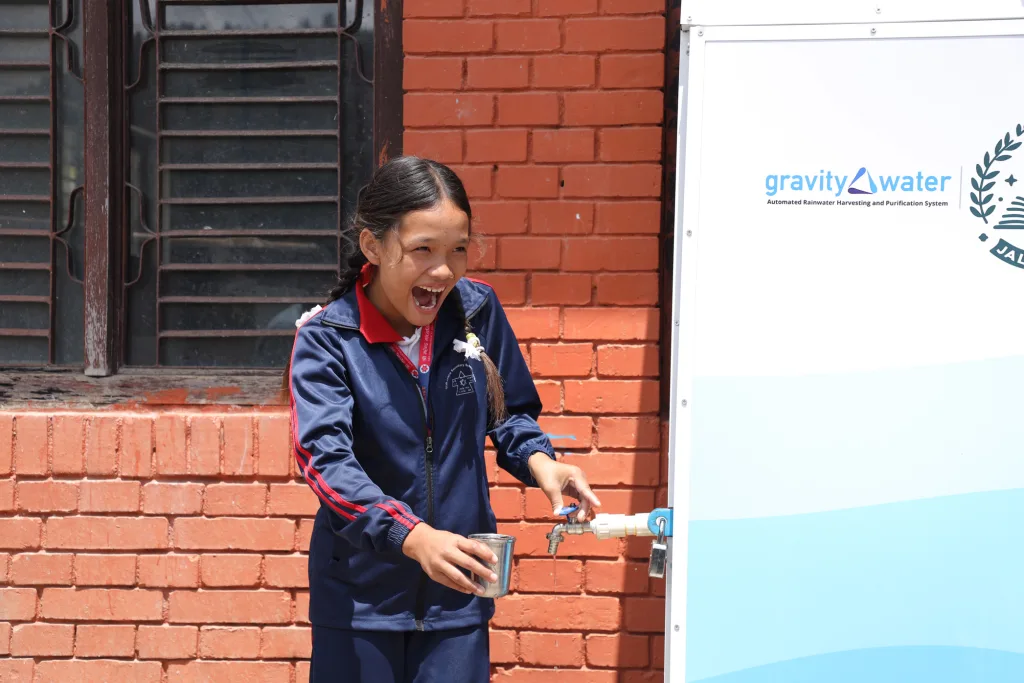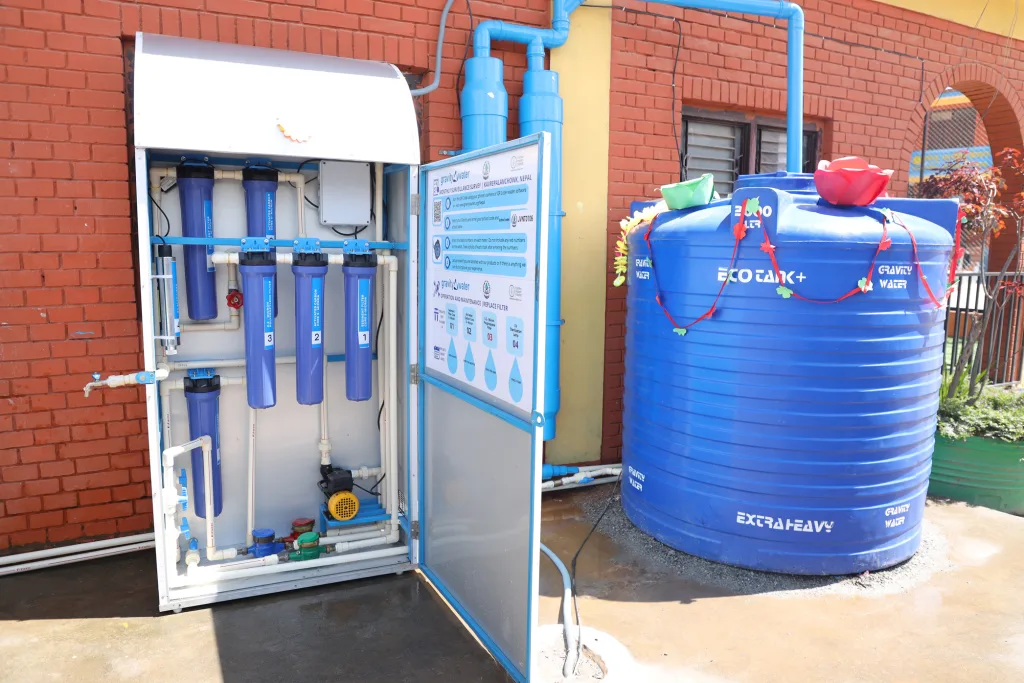At a remote elementary school in the Mekong Delta in Vietnam, until recently, access to safe drinking water was a daily challenge. The school tried to use groundwater, but there wasn’t enough supply; the water was also contaminated with salt and metal. In the dry season, from December to April, droughts made the challenge worse. But last month, the school installed a new system that harvests rainwater, filters it, and then automatically supplies it to drinking fountains, the kitchen, and bathrooms.
It’s one of more than 270 schools, from rural Nepal to urban Taiwan, to work with a fast-growing nonprofit called Gravity Water to install the nonprofit’s tech over the last 12 months. “What we’re really trying to do is modernize rainwater harvesting—to take this ancient technology to solve a modern-day problem,” says founder Danny Wright. Later this year, the organization plans to also begin adding the technology to buildings in a city in Massachusetts.
Wright first started thinking about the potential for rainwater harvesting on a trip to Central America in college. He realized that access to clean drinking water was a challenge even in areas with abundant rain. One night, in a tent in the rainforest, he sketched a concept for a simple system that could filter rainwater in a rooftop tank and flow through a filter using gravity, without the need for electricity.

Later, after finishing grad school in 2015, he was still considering the idea when he took a job at a school in Nepal. Like other communities in the country, the area struggled with water contamination because of the lack of modern sewage infrastructure. Children often got sick from drinking the water. Wright proposed building the rainwater system, and created the first simple prototype. “We were pretty much building gigantic Brita filters,” he says. When it worked, the project grew into a nonprofit.
Over time, the system became more advanced. While the organization still builds the basic models in areas that don’t have electricity, most projects are now more complex, using sensors to run automatically and switch between a utility water source—such as a pipe running to a village well—and stored rainwater. The installation process, which takes around 24 hours, involves adding downspouts to the roof, downspouts that direct rain into tanks, and a fridge-sized “rain box” next to the building that connects the tanks to the school’s existing plumbing.
In some cases, schools now get most of their water from rain. “We’re working in places like Indonesia now, and Taiwan, where we have projects that get such consistent rainfall that we’re seeing our rainwater systems being utilized 80% of the year,” Wright says.
Urban Taipei obviously has different water infrastructure than rural Nepal or Vietnam. But in Taipei, in heavy storms, the local water supply often quickly becomes polluted. Other large cities, like Jakarta, are dealing with saltwater intrusion in their water supplies, both because so much groundwater has already been extracted and because sea levels are rising. In urban areas, too, rainwater often can’t filter back into the ground because most of the ground is covered in buildings or pavement. Gravity Water’s system can make use of that water, while also helping reduce flooding.

In some cases, rather than storing rainwater long-term, the systems are designed simply to make use of rain on rainy days. “Rainwater doesn’t have to be a year-round solution,” says Wright. “But we could have a profound impact on resilience for water in these regions if we just use rain on the days there’s rain. We don’t even need to have storage.”
The work, to date, has been primarily funded through donations; Apple gave the organization a grant to build the systems at 131 schools in northern Vietnam, for example. The organization also covers the cost of replacing the filters for schools who can’t afford it (maintenance costs roughly 25 cents a student per year at a typical school). But the nonprofit is also now working with UNICEF to build rainwater harvesting systems for community use. It’s also working on new models that don’t rely on philanthropy, in order to reach more people. It recently spun off a startup called Cloudwell that uses the same technology.
“Households are our end goal, but it’s really hard to sell a product to households in communities that on average make less than $10 a day, let alone maybe $4 or $2 a day,” Wright says. Now, the organization is starting to talk with some utilities about providing them with the technology and infrastructure to collect rainwater; households would get the tech for free, and then get a rebate on their rainwater use. A current study, with Santa Clara University, is evaluating the economics using rainwater in this way, as well as looking at where the local climate and other factors make it most viable. There’s global interest. “I was just in Nairobi last week and every single community was so eager to start implementing the solution,” says Wright.
The tech can also be helpful in places like the U.S., he says. Upcoming pilot projects this summer in Massachusetts (the nonprofit hasn’t yet announced the city) will add the tech to city and university buildings to help both with water resilience—the state is currently in drought—and to help reduce serious flooding in heavy rain.

